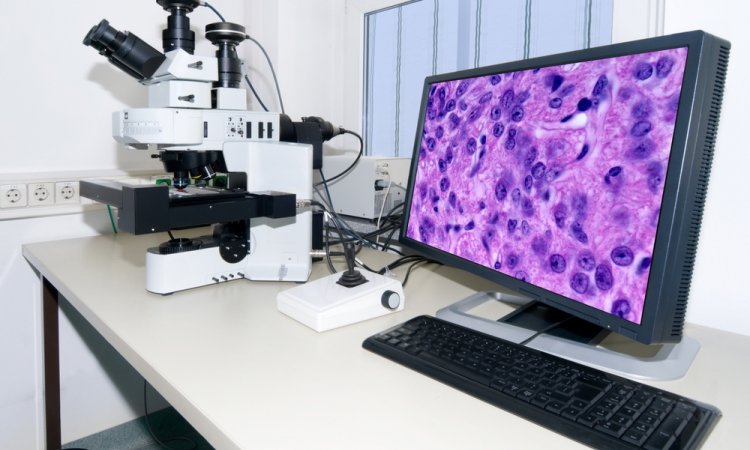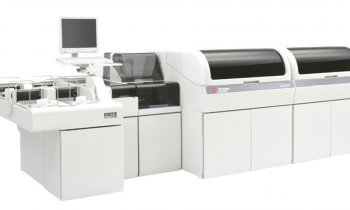Australia's Sonic Healthcare strengthens European presence
Last summers takeover of Bioscientia, the long-established German laboratory service company, by Australian lab giant Sonic Healthcare was closely followed internationally. When a global player enters a stage that, up till then, has been the exclusive domain of national often owner-led actors scepticism and speculations abound. Who will take the leading role in the German market in the future? Will prices remain stable? Who will win and who will lose? During a European Hospital interview, Dr Lothar Krimmel, Bioscientia's managing director responsible for strategy, marketing and sales, and its director for hospital accounts Andreas Kirchner, put an end to most of the speculations. Nevertheless, they are both convinced that, in the next few years, the German lab market will undergo tremendous changes.
EH: Isn't the merger of Australia's international Sonic Healthcare and Bioscientia, a global player, deeply rooted in the Boehringer Ingelheim group, something of a "clash of civilisations"?

Dr Krimmel: Absolutely not. You said it yourself: Bioscientia was indeed founded by a global player – Boehringer Ingelheim – 35 years ago. So, in a sense, we have returned to our industry roots. The Bioscientia owners and management made a very conscious choice in favour of Sonic Healthcare because Sonic is a physician oriented and physician led company with a clear focus on top medical quality – which is exactly our vision of laboratory medicine. Furthermore, while Sonic Healthcare is playing in the Champions’ League of global lab medicine, it does not impose a centralised group strategy in terms of logistics or brand presence, but gives regional labs free rein.
Thus, Sonic is not a mere investor planning to sell the business after a few years for a huge profit, but a strategic partner that is interested in the long-term development of labs in the Sonic network. This internationalisation offers the national members of the Sonic group enormous advantages. Not to mention the fact that the focus on exclusive lab markets in Western countries, with their stable social and political environment and high growth potential, is a business model that is virtually impervious to market risks. Stock market analysts have put their stamp of approval on this worldwide unique concept by ‘purchasing’ recommendations.
Does this mean other international companies will enter the German market, and if so, what might the impact be?
Obviously, the German lab market is in a phase of rapid consolidation where corporations are involved. However, this is not about profit-hungry listed companies, as the distorted picture painted by many in the media try to make us believe. It is just a normal economic phenomenon. Lab medicine is a relatively young discipline. In Germany its infrastructure was created in the 1960s and 70s by office-based lab physicians. Today, those physicians are about to retire, which means many of their businesses are up for sale. This wave was foreseeable. In view of the increasing importance of lab medicine in diagnostic processes, the labs have grown tremendously in terms of turnover and value and no young physician can afford to buy them. A mid-sized lab easily reports a Euro 20 million turnover annually and has 200 employees – only corporations can procure the necessary cash and carry the risks attached to these volumes.
Do you also anticipate structural changes in this market, for example, regarding relationships with the payers, or co-operation between independent and hospital-based labs?
Andreas Kirchner: Yes, such changes will happen – and very soon. German law now allows direct contracts between lab physicians and medical insurers. In the medium-term we expect such contracts to replace the collective contract system of the National Association of Statutory Health Insurance Physicians. This in turn will trigger a radical change in the client structure: It might – as is already the case in the USA – no longer be the physician, but the insurance company that determines in which lab an insured patient’s blood will be analysed. As a company that operates Germany-wide, and enjoys an excellent reputation, we are well prepared for such changes.
Undoubtedly there also will be changes in the hospital-based lab market even though only three to four percent of a hospital budget is earmarked for labs. But the cost pressure on hospitals increases, forcing them to implement structural changes in their lab services. Due to the high quality and cost-efficiency of external lab services, the number of both private and public hospitals that outsource their lab needs undoubtedly will increase. Certainly there is also a counter trend towards centralised hospital labs – but they are cost-efficient only for specialised clinics – and it is particularly in this segment where another trend seems promising: the relocation of independent labs to the direct vicinity of the hospital. These three trends will deeply change the lab landscape.
Which European countries appear to be particularly interesting for foreign investors as well as German labs?
Dr Krimmel: No doubt France is the most interesting because it has the biggest private lab market in Europe with 8,000 ‘Biologistes’ in about 2,500 locations. The market volume is an estimated ?7 billion compared with ?6 billion in Germany – despite Germany having 20 million more inhabitants. In France, blood sampling is not done by a referring physician but by a ‘biologiste’, which is an additional hurdle for the patient. Nonetheless, the turnover is larger than in Germany because prices for lab services are markedly higher. This means France is a very attractive market, although still largely closed to foreign investors – a fact that cannot be upheld in view of European law.
In Italy and Great Britain – the other two big countries – health markets are largely government-controlled, so it’s difficult for a private company to get a foothold there. However, Sonic managed to acquire TDL in Great Britain. Spain is the fifth-largest lab market and offers interesting opportunities, despite its public health system, since the market consolidation is already quite advanced. In Eastern Europe the insurance systems are still unstable and logistics are difficult. Another problem is the extreme diversification of the Eastern European market. For example, the Polish lab market has a volume of only ?400 million, but accommodates almost 8,000 service providers.
In short, in addition to Switzerland, which also has a large private lab market, Germany is currently the most attractive market in Europe. Consequently, this is where the most significant changes will happen. We are convinced that the Sonic model, which is based on a network of top labs, will be highly successful in the turbulent years to come.
Bioscientia
Founded in 1970 as a subsidiary of Boehringer Ingelheim GmbH, the medical diagnostics firm Bioscientia was spun off through a management buy-out in 1995. Currently, Bioscientia GmbH, still headquartered in Ingelheim/Rhine, has 1,000 employees and provides services for 8,000 referring physicians and 400 hospitals. Its international business focuses on the Middle East. When Bioscientia, which recorded a turnover of around 120 million dollar, was taken over by Australia’s Sonic Healthcare this year, the firm was valued at 190 million dollar.
Sonic Healthcare
The Australian company reported a sales volume of around 1.25 billion dollar. About 320 million dollar is generated in Europe, where, in Germany, Sonic Healthcare owns Bioscientia and Schottdorf, as well as labs in Switzerland and Great Britain. In the USA, Sonic Healthcare reported a further 350 million dollar in sales, placing this company in the number three position nationwide. The firm’s Australian market is reported to be worth 600 million dollar, and now, with its growing European presence, Sonic Healthcare has become an international market leader.
30.10.2007











